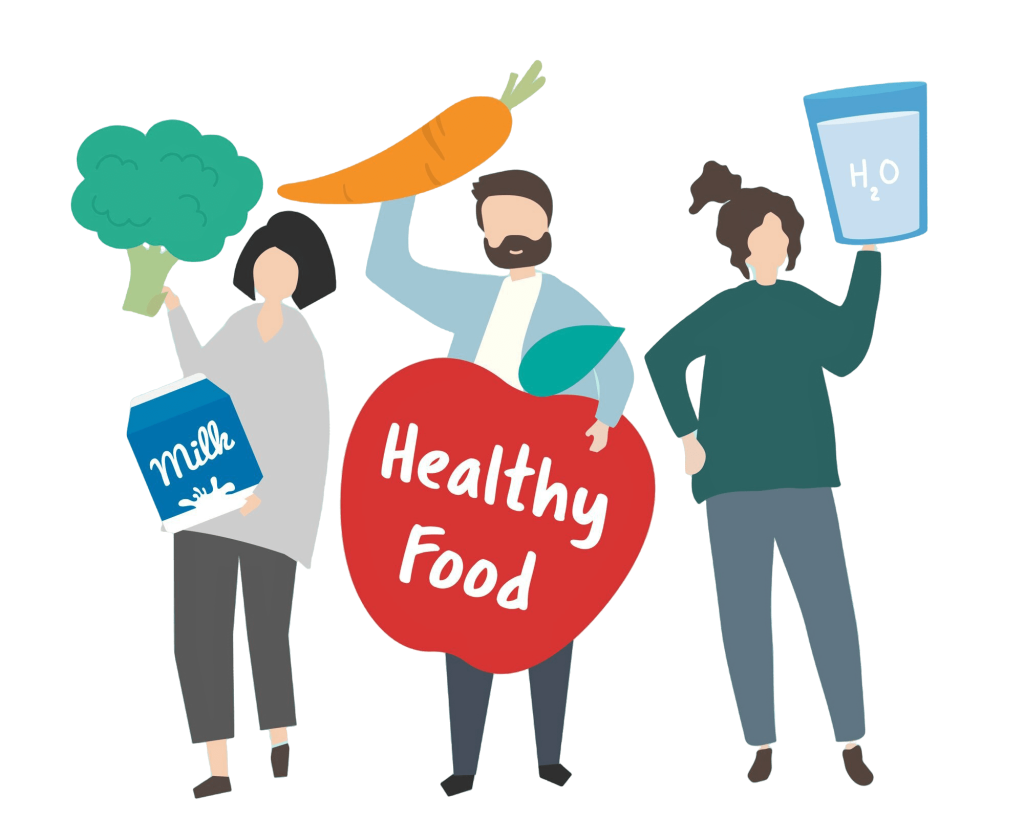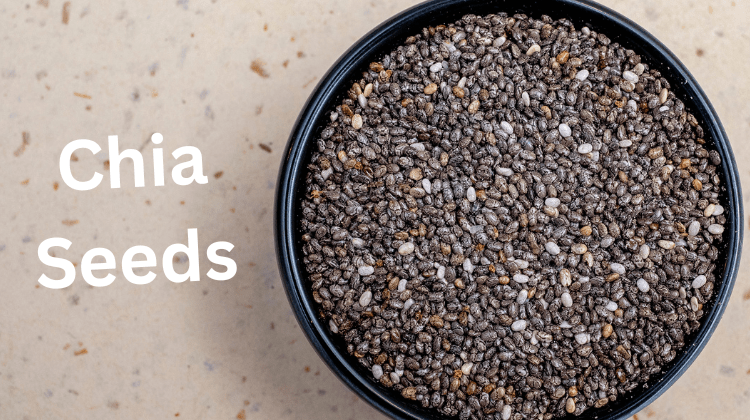Protein is one of the most essential nutrients your body needs every day. It plays a central role in muscle growth, supports weight management by keeping you fuller for longer, and strengthens the immune system by helping the body repair cells and tissues.
Without enough protein, energy levels drop, recovery slows, and the body struggles to stay strong and healthy.
In recent years, more people have been turning to plant-based protein sources and vegan protein foods as part of their everyday diets.
This shift isn’t just about following a trend, infact, it’s backed by research showing that plant proteins can lower the risk of heart disease, improve digestion, and provide long-term health benefits.
Alongside the health aspect, many also choose plant-based eating for environmental sustainability and ethical reasons.
The good news is that non-meat protein alternatives like lentils, beans, quinoa, tofu, nuts, and seeds offer an excellent way to meet daily protein needs without relying on animal products.
When consumed in the right combinations, these protein-rich plant foods can provide all the essential amino acids your body requires, making them a powerful and wholesome choice for everyday nutrition.
Difference Between Plant Protein and Animal Protein
Plant protein and animal protein both provide the amino acids your body needs, but they differ in how they deliver them. Animal proteins (like meat, eggs, and dairy) are considered complete proteins because they contain all nine essential amino acids.
Many plant-based protein sources, on the other hand, are incomplete proteins, meaning they may lack one or two amino acids. However, by eating a variety of protein-rich plant foods such as beans, grains, and seeds throughout the day, you can easily meet your amino acid requirements without relying on animal products.
Health Benefits of Vegan-Friendly Protein Foods
Switching to vegan-friendly protein foods offers more than just nutrition—it can greatly benefit your overall health:
- Heart Health: Diets high in non-meat protein alternatives like lentils, quinoa, and chickpeas are linked to lower cholesterol and reduced risk of heart disease.
- Digestion: Whole-food protein sources like beans and oats are rich in fiber, which supports a healthier gut and smoother digestion—something most animal proteins lack.
- Eco-Friendly Choice: Producing plant-based protein foods requires fewer resources and has a lower carbon footprint compared to raising livestock, making it a more sustainable option.
Whole-Food Protein Sources vs Processed Plant Proteins
When adding plant-based proteins to your diet, it’s important to distinguish between whole-food protein sources and processed substitutes. Whole foods such as beans, lentils, oats, nuts, and seeds provide not only protein but also essential vitamins, minerals, and fiber.
In contrast, heavily processed vegan protein substitutes like imitation meats may be high in sodium or additives. While they can be convenient, relying mainly on whole-food plant proteins is a healthier, more balanced approach.
Top 15 Plant-Based Protein Sources for Everyday Diets
Finding reliable plant-based protein sources is easier than you might think. From everyday staples like lentils and oats to nutrient-dense superfoods like spirulina, these vegan-friendly protein foods can easily fit into your routine. Below are the top 15 non-meat protein alternatives, with their nutrition highlights and simple ways to enjoy them.
1. Lentils
- Protein per 1 cup (cooked): ~18 grams
- Benefits: A protein-rich legume, lentils are also loaded with fiber, iron, and folate, making them excellent for heart health and digestion.
- Easy Meal Idea: Enjoy them in lentil soups, curries, or as a protein boost in salads.
2. Chickpeas (Garbanzo Beans)
- Protein per 1 cup (cooked): ~14.5 grams
- Benefits: Versatile and filling, chickpeas support blood sugar control and gut health.
- Easy Meal Idea: Use them in hummus, roasted chickpea snacks, or add to curries and grain bowls.
3. Quinoa
- Protein per 1 cup (cooked): ~8 grams
- Benefits: One of the few complete plant proteins, quinoa contains all nine essential amino acids. It’s also gluten-free.
- Easy Meal Idea: Replace rice with quinoa in stir-fries, or make a quinoa salad with vegetables and beans.
4. Black Beans
- Protein per 1 cup (cooked): ~15 grams
- Benefits: Rich in plant protein and fiber, black beans support heart health and help regulate cholesterol.
- Easy Meal Idea: Use in burritos, tacos, or black bean veggie burgers.
5. Edamame (Young Soybeans)
- Protein per 1 cup (cooked): ~17 grams
- Benefits: A protein-packed vegan snack that also provides calcium, iron, and antioxidants.
- Easy Meal Idea: Steam edamame and sprinkle with sea salt, or add them to grain bowls.
6. Tofu
- Protein per 100g: ~10 grams
- Benefits: A classic soy-based protein alternative, tofu is rich in iron and calcium, and absorbs flavors easily.
- Easy Meal Idea: Pan-fry tofu for stir-fries, grill it for sandwiches, or blend into smoothies for a creamy protein boost.
7. Tempeh
- Protein per 100g: ~19 grams
- Benefits: Made from fermented soybeans, tempeh is high in protein, probiotics, and fiber, supporting gut health.
- Easy Meal Idea: Slice and marinate tempeh, then bake or stir-fry as a hearty meat substitute.
8. Seitan (Wheat Gluten)
- Protein per 100g: ~25 grams
- Benefits: Known as “wheat meat,” seitan is one of the most protein-dense meat substitutes available.
- Easy Meal Idea: Use seitan in stir-fries, sandwiches, or as a high-protein filling for wraps.
9. Green Peas
- Protein per 1 cup (cooked): ~9 grams
- Benefits: A simple vegetarian protein option, green peas are also rich in vitamins A, C, and K.
- Easy Meal Idea: Add peas to soups, rice dishes, or blend into a pea and mint dip.
10. Chia Seeds
- Protein per 2 tbsp: ~5 grams
- Benefits: Packed with protein and omega-3s, chia seeds also support digestive health with high fiber content.
- Easy Meal Idea: Mix into smoothies, oatmeal, or make chia seed pudding.
11. Hemp Seeds
- Protein per 3 tbsp: ~10 grams
- Benefits: A complete plant protein with healthy fats, magnesium, and iron.
- Easy Meal Idea: Sprinkle over salads, blend into protein shakes, or add to homemade granola.
12. Pumpkin Seeds
- Protein per 1 oz: ~7 grams
- Benefits: A crunchy, protein-packed vegan snack loaded with zinc, iron, and magnesium.
- Easy Meal Idea: Roast with spices, toss over salads, or add to trail mixes.
13. Almonds
- Protein per 1 oz (about 23 almonds): ~6 grams
- Benefits: A high-protein nut that also provides vitamin E, antioxidants, and healthy fats.
- Easy Meal Idea: Enjoy raw as a snack, use almond butter on toast, or add to smoothies.
14. Oats
- Protein per 1 cup (cooked): ~6 grams
- Benefits: A wholesome grain offering plant protein benefits along with soluble fiber that supports heart health.
- Easy Meal Idea: Prepare overnight oats, add to smoothies, or use oat flour in baking.
15. Spirulina
- Protein per 2 tbsp: ~8 grams
- Benefits: A blue-green algae often used as a plant protein powder, spirulina is rich in antioxidants, iron, and B vitamins.
- Easy Meal Idea: Blend spirulina powder into smoothies or add it to energy balls for a nutrition boost.
Common Mistakes to Avoid with Plant Protein Diets
Shifting to a plant-based protein diet is a smart move for health, sustainability, and overall well-being. But like any lifestyle change, it’s easy to make mistakes that may reduce the benefits. Understanding these pitfalls will help you build a more balanced, nutrient-rich, and effective diet.
1. Relying Too Much on Processed Vegan Protein Substitutes
Many beginners lean heavily on processed meat alternatives such as vegan sausages, burgers, or protein bars. While convenient, these often contain excess sodium, additives, and unhealthy oils. Instead, focus on whole-food protein sources like lentils, quinoa, tofu, and beans, which provide fiber, vitamins, and minerals along with protein.
2. Ignoring Variety in Non-Meat Protein Sources
A common myth is that sticking to one or two non-meat protein sources (like chickpeas or tofu) is enough. In reality, each plant protein has a different amino acid profile, so variety is key. Combining foods like rice with beans, or hummus with whole-grain bread, ensures your body gets all essential amino acids for muscle repair, energy, and overall health.
3. Overeating Nuts & Seeds Without Balancing Calories
Nuts and seeds such as almonds, chia seeds, hemp seeds, and pumpkin seeds are excellent for protein and healthy fats. However, they are also calorie-dense, meaning too much can lead to unwanted weight gain. Balance them with lighter protein-rich legumes and vegetables to avoid calorie overload while still meeting your daily needs.
4. Forgetting to Check Protein Content Per Serving
Not all vegan protein foods are equal in protein content. For example, quinoa has about 8g per cooked cup, while lentils offer around 18g per cooked cup. Failing to track portion sizes can leave you falling short of daily requirements. Checking nutrition labels or food databases helps ensure you’re getting enough high-protein plant foods to support muscle growth, weight management, and immunity.
Conclusion
A plant-based protein diet offers plenty of variety without sacrificing nutrition. From lentils and quinoa to chia seeds and almonds, these foods support muscle growth, weight management, and overall health.
Start small, add seeds to smoothies or swap meat with beans and gradually build meals around high-protein plant foods. Beyond health, choosing eco-friendly protein alternatives also supports the planet and promotes ethical eating.
FAQs About Plant-Based Protein Sources
Can you build muscle with plant protein?
Yes—plant protein sources can absolutely support muscle growth. Foods like lentils, quinoa, tempeh, edamame, and seitan are high in protein and rich in essential amino acids. The key is to eat a variety of vegan-friendly protein foods throughout the day, ensuring your muscles get the nutrients needed for repair and growth. Many successful vegan athletes and bodybuilders prove that strength and performance are fully achievable on a plant-based diet.
Which plant protein is closest to meat in nutrition?
Seitan (wheat gluten) is often considered the closest plant protein to meat because of its high protein density and chewy texture. Tempeh and tofu, both soy-based, also mimic meat well, offering complete proteins plus additional nutrients like calcium and probiotics.
What are the best vegan protein foods for weight loss?
For weight loss, choose low-calorie, high-protein plant foods that also provide fiber to keep you full. Great options include lentils, black beans, chickpeas, quinoa, oats, green peas, and leafy vegetables. Avoid relying too much on nuts and seeds, since they are calorie-dense, and instead use them in moderation as toppings.
How to combine foods for a complete plant protein meal?
Certain plant-based proteins are not complete on their own, meaning they lack one or more essential amino acids. Pairing them creates a complete protein meal. Examples include:
Rice + beans
Hummus + whole-grain bread
Peanut butter + oats
These simple combinations provide your body with all the essential amino acids it needs.Is plant protein powder necessary for athletes?
Not always. Many athletes meet their needs through whole-food protein sources like beans, quinoa, tempeh, and edamame. However, plant protein powders (pea protein, hemp protein, or soy protein powders) can be helpful for those with higher requirements, limited meal prep time, or specific training goals. They’re a convenient supplement but not a replacement for nutrient-dense plant foods.
What are the cheapest vegan protein foods for everyday diets?
Budget-friendly options include lentils, chickpeas, black beans, oats, green peas, and peanuts. These high-protein plant foods are inexpensive, widely available, and versatile in recipes. They make it possible to eat a nutritious, protein-rich vegan diet without spending much.



